Ad targeting really sucks.
That’s my biggest takeaway since we started building our new ad platform business.
I knew the societal consequences of surveillance marketing were terrible. I’ve been ranting about that here for years. But I’m new to the underlying industry, the players, and technology. I just assumed, given the hundreds of ad tech companies out there, the tens of billions of dollars spent to support them, and all the unintended carnage they created, that spying on people and stealing their personal data must be really effective.
It’s not.
As a relative newbie, I’m shocked at how poorly, almost fraudulently, ad targeting actually works. It’s as if an entire murky, complicated labyrinth was manufactured unnecessarily, just so advertisers would have to pay people to navigate it for them – like the mechanic who tells you something in your engine is broken, so you’ll pay them to fix it.
Over the past several months, we’ve been running experiments for some of our advertiser clients, using the earliest iteration of our full-privacy technology. Basically, we poll thousands of people about their interest in a product, use our magic to analyze the ones who are interested, then serve ads to a larger audience based on the unique insights we find.
Simultaneously, we paid to run “control” campaigns, using the industry-standard plumbing and creepy surveillance data everyone else uses. In one example for Revlon and Elizabeth Arden, over 60% more people engaged with our ads and over 80% more bought the product they were selling. We were barely trying.
More recently, we ran a test with one of our publisher partners, Dotdash Meredith, arguably the best in the business at “contextual advertising.” For the uninitiated, that means they’re really good at predicting what kinds of things people are interested in buying, based on the content they read or watch. It’s like pitching Budweiser during a football game, only on steroids.
When our audience insights were combined with DDM’s contextual knowledge – compared to control campaigns run elsewhere – THREE TIMES more people engaged with our ads and FIVE TIMES more people bought the product those ads were shilling. All of that happened without an ounce of creepily-gathered data or spying. That’s the future.
I agreed to delve into the ad business kicking and screaming – because a lot of smart people (and investors) convinced me we could do it better (and better for humanity).
I never imagined the bar would be so low.
Here’s what we’re seeing:
The reduction in SNAP benefits is reverberating through retail. Very quietly – at least per the mainstream news – COVID-era increases in supplemental food assistance were rolled back over the past few weeks and lower income Americans are beginning to show the effects. One of the biggest signs in our data can be seen in the dramatic increase of online grocery shopping over the past several months, particularly on Amazon. When asked why they’re buying more groceries online, 36% of U.S. adults making under $50k in household income attribute it to one or more financial motivation – either because they can find lower prices online, reduced SNAP benefits, or gift cards they can redeem. With SNAP rollbacks only hitting several states in early March, expect this trend to accelerate.
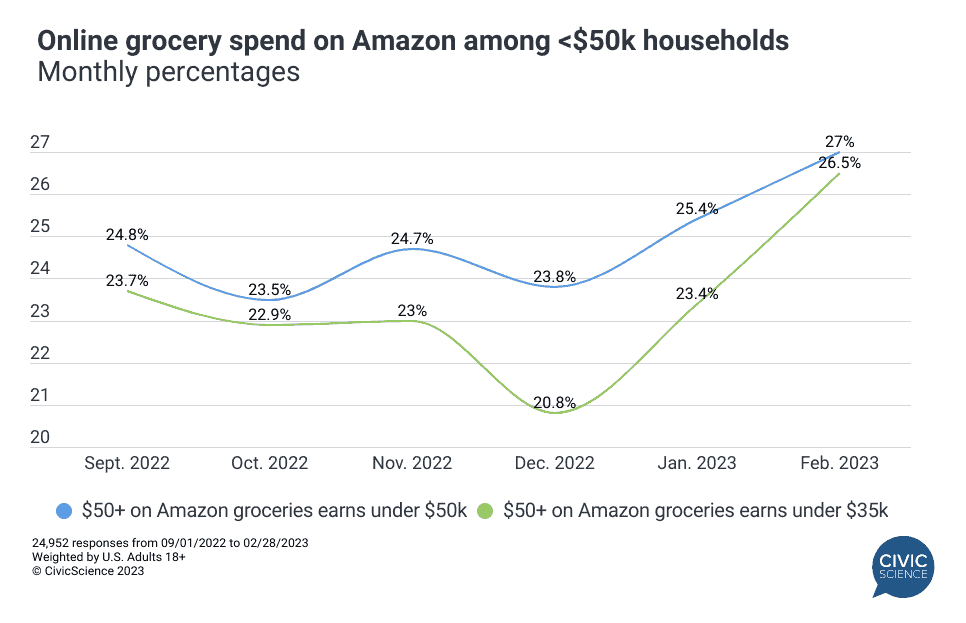
Women vote with their wallets at a remarkably high rate. Within the next five years, women are expected to control over 75% of discretionary spending worldwide, along with increased influence in areas like banking and auto. And, while the importance of brand social consciousness and activism has waned during the current economic headwinds, they remain disproportionately valued among America’s better half. The only thing more noteworthy in this study is the extent to which women prioritize buying from female-owned businesses. Marketers, take note.
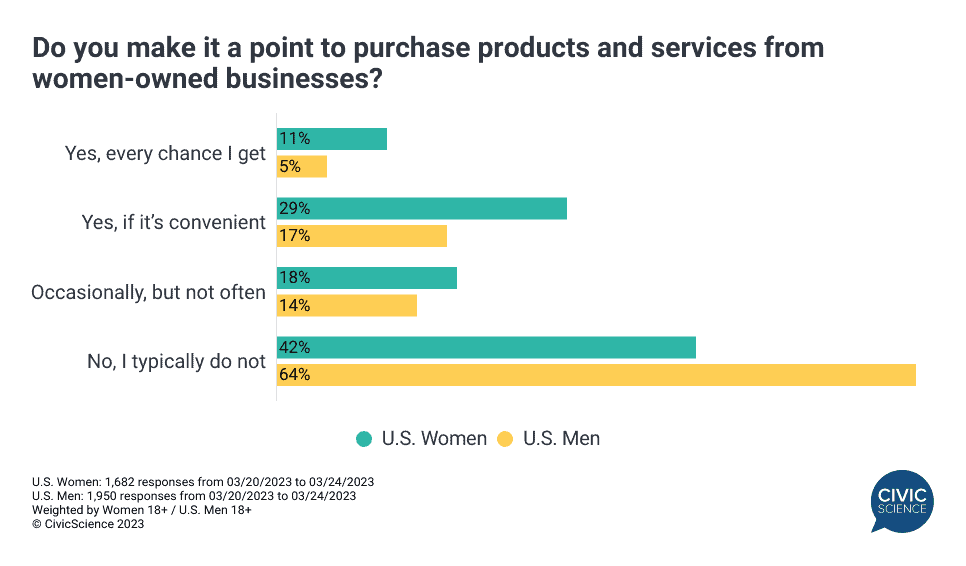
An alarming percentage of women, minorities, and young people are avoiding medical care because of costs right now. I don’t really need to add a lot to the headline here – you should just look at the stats yourself. Obviously, insurance matters a lot and emergency room visits are particularly affected. It’s not awesome.
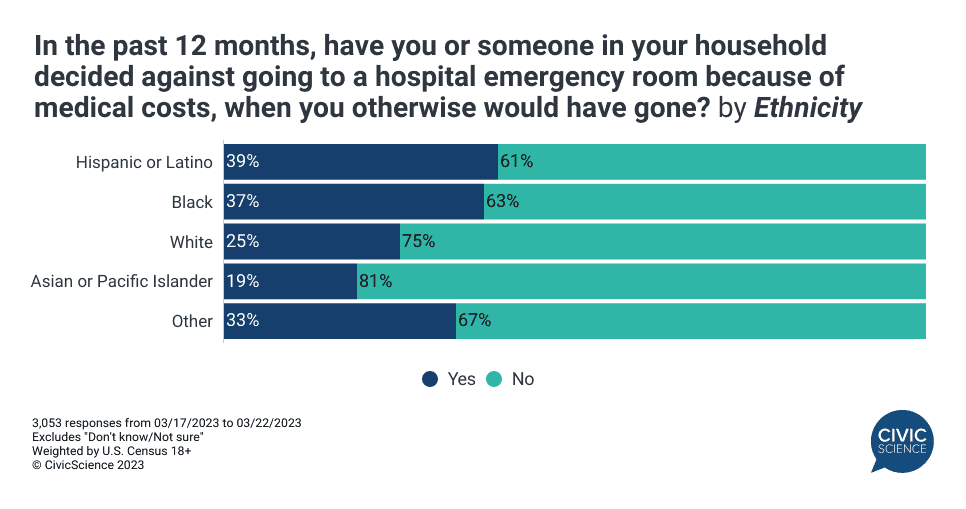
Conversely, more people are planning to take meds for their spring allergies this year. A whopping two-thirds of Americans report some degree of recurring spring allergies, with 15% characterizing their symptoms as “severe.” Surprisingly, people who live in urban areas are more likely than those in the suburbs or country to say they suffer from spring allergies. I call bullshit. Maybe city-folks are “suffering,” sure. The rest of us are just used to it. Anyway, more people expect to buy drugs for their allergies compared to last year. And Benadryl is king – although I’m Team Zyrtec.
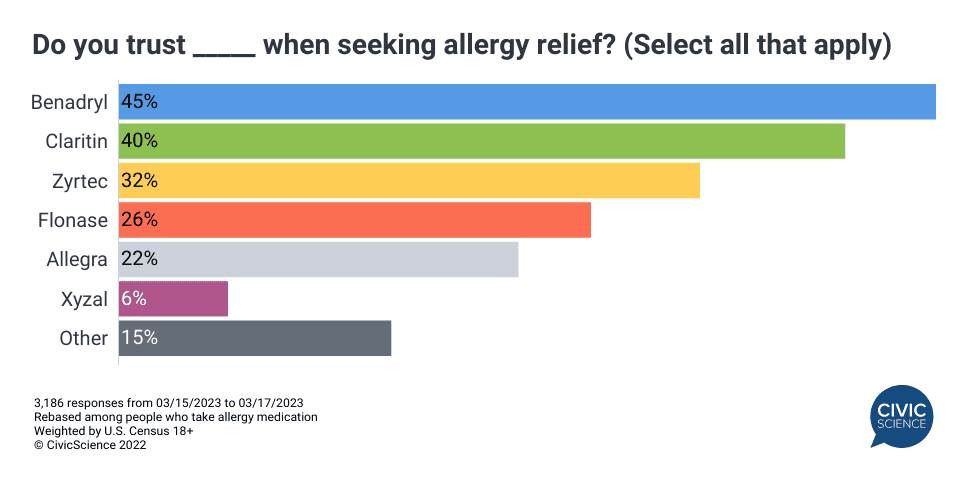
Black and Hispanic Americans are much more concerned about the job market. Each of our 3 Things to Know this week are required reading material, including a surprising uptick in online apparel-buying among 55+ consumers, and a legit unicorn sighting – namely, a decision by President Biden that Republicans support nearly twice as much as Democrats. But I was drawn to the heightened employment uneasiness among America’s largest minority groups, even as jobless claims continue to fall.
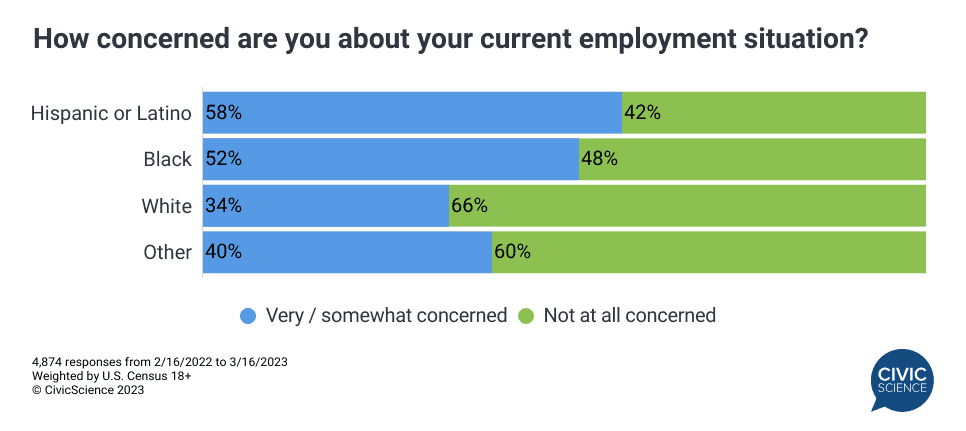
Trust in banks fell even further this week but seems to have stabilized, at least for the national ones. Americans appear to be breathing a sigh of relief – or at least they’ve moved on to freaking out about something else – as the SVB collapse fades into the rearview mirror. Overall trust in banks remains at a low watermark, for sure, but the lasting effects for regional banks may simmer for a bit. Over 80% of BofA, Chase, Citibank, and Wells Fargo customers are at least somewhat confident in the health and security of their banks. A bank like PNC, while still likely a net beneficiary of new deposits as customers shift deposits from smaller regional banks, has appreciably lower levels of trust.
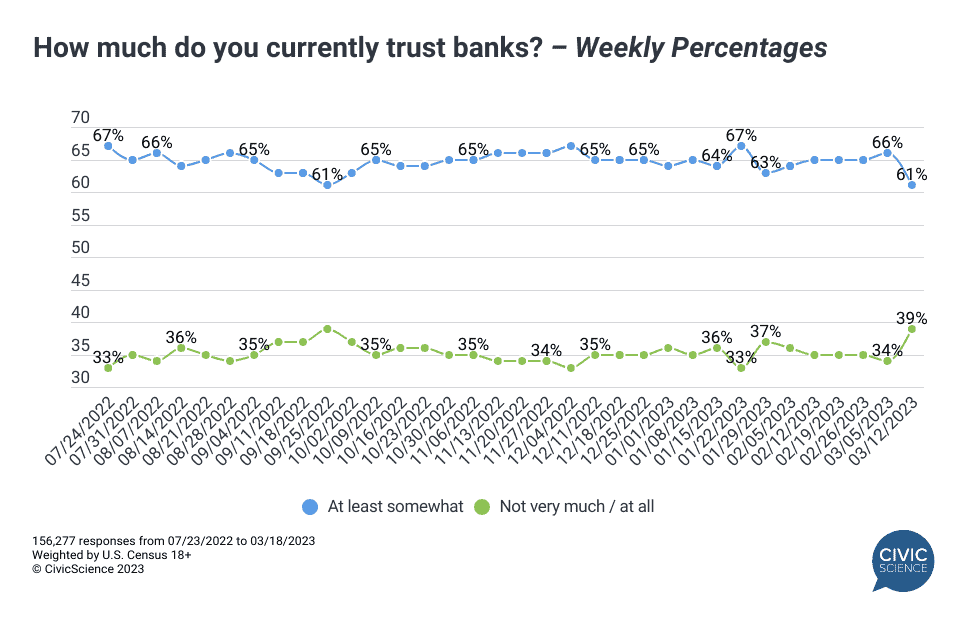
More awesomeness from the InsightStore this week:
- The percentage of U.S. adults who have no interest in crypto reached new heights in the wake of the mini bank crisis;
- The majority of Americans expect to be personally impacted by climate change in the next decade;
- Fast fashion retailers like Shein and Temu should be on your radar;
- Mandalorian fans are way more likely to drink coffee daily and other factoids.
The most popular questions this week:
- How often do forgotten passwords interrupt your online activity?
- Which of these major European cuisines do you think is the *worst* overall?
- Would you be open to forgiving anyone who bullied you in the past?
- How much has your quality of life improved or worsened since the onset of the pandemic?
- How often do you share potential outfit photos with friends to gauge whether the looks are appropriate for a particular occasion?
Answer Key: Constantly; No way I’m inviting the vitriol I’ll get by answering this; Hell no, f—k those guys; It’s really complicated; All the time – just kidding, never.
Hoping you’re well.
JD








